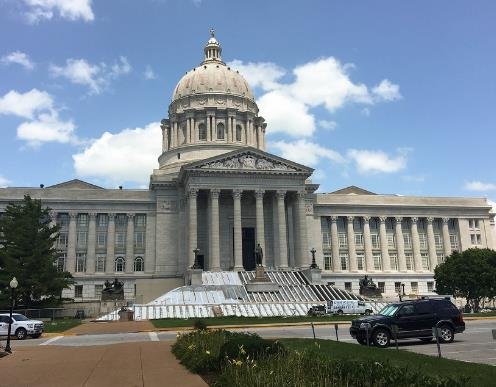Legislators in Missouri are moving forward with bills that will clamp down on intoxicating hemp products. But there’s a twist—low-dose THC beverages will still have a place on store shelves. While some lawmakers argue this is a necessary step for consumer safety, others fear it could crush hundreds of small businesses.
Hemp Drinks Get a Pass, But Edibles and Vapes Face a Ban
This week, committees in both the Missouri House and Senate advanced bills that aim to regulate the sale of intoxicating hemp products. The House committee approved its version with a 12–5 vote on Wednesday, while the Senate committee followed with a 5–1 vote on Thursday morning.
The key takeaway? Hemp-derived THC beverages—like THC-infused seltzers—are getting a carveout, meaning they can still be sold in grocery stores and liquor outlets. But that’s where the leniency ends. The bills also propose banning intoxicating hemp edibles and vape products from being sold anywhere outside state-licensed marijuana dispensaries.
That last part is where things get complicated. Many businesses in Missouri that legally sell these products under the federal Farm Bill could soon find themselves shut down. Some lawmakers acknowledged the challenge of balancing consumer protection with business interests, calling it a “tough bill to vote on.”

The Debate: Regulation vs. Business Survival
During the House committee meeting, Democratic Rep. Mark Sharp of Kansas City admitted to struggling with his decision. He eventually voted in favor, but not without reservations.
“On the one hand, you’re regulating to the point where you want to keep children safe, especially in our urban areas,” Sharp said. “But on the other hand, you’re maybe over-regulating.”
Some lawmakers approved the bill in hopes that further scrutiny in the full House might refine it. Others outright rejected it, preferring alternative legislation introduced this session.
One such alternative is a proposal from Republican Rep. Barry Hovis of Whitewater, which focuses exclusively on regulating hemp beverages without extending restrictions to other hemp-derived products. Hovis has been vocal about his concerns, warning that independent businesses—many of which are already legally selling these products under federal law—could face massive financial burdens.
“I’m against monopolies, always have been,” Hovis said in the committee meeting. “And I still think that with the unknown of what it’s going to cost an independent business … it could be tripling, quadrupling.”
Who’s in Charge of Licensing? That’s Another Battle
Another major difference between the House and Senate versions of the bill is which agency will oversee licensing.
- The Senate bill, backed by Republican Sen. Nick Schroer of Defiance, places regulatory control under the Division of Alcohol and Tobacco Control, the same agency that already oversees liquor sales.
- The House bill, introduced by Republican Rep. Chad Perkins of Bowling Green, shifts oversight to the Missouri Department of Health and Senior Services, which currently manages the state’s cannabis regulatory system.
Both versions agree that retailers must obtain a license to sell THC beverages, but where that responsibility falls remains a sticking point.
The Cannabis Industry’s Influence
Sen. Schroer originally aimed to regulate all intoxicating hemp products—including edibles, vapes, and beverages—under the same rules as marijuana. That would have meant these products could only be sold in dispensaries under the oversight of the Division of Cannabis Regulation.
However, Missouri’s cannabis industry pushed back. The Missouri Cannabis Trade Association (MoCann) proposed an amendment that carved out an exception for beverages. Under the revised plan, hemp-based THC drinks would still be legal for general retail, as long as they meet these conditions:
- The THC content must be capped at 5 milligrams per can.
- Drinks made with synthetic THC, or THC converted from CBD through chemical processes, are not allowed.
Schroer defended his bill as a work in progress, emphasizing consumer protection as the ultimate goal.
“This isn’t a final product,” Schroer said. “If we’re going to have a regulated industry, implement consumer protections to make sure that the potency that’s on the packaging is exactly what it is. The main point is making sure that our kids don’t have access to this stuff.”
What’s Next?
With both committees giving the green light, the bills now head to the full House and Senate for debate. Lawmakers will have to weigh competing interests—protecting consumers while preventing the closure of businesses that have been operating legally under federal law.
For Missouri retailers and consumers, the outcome could significantly reshape the availability of hemp-derived THC products. One thing’s for sure—this fight isn’t over yet.
